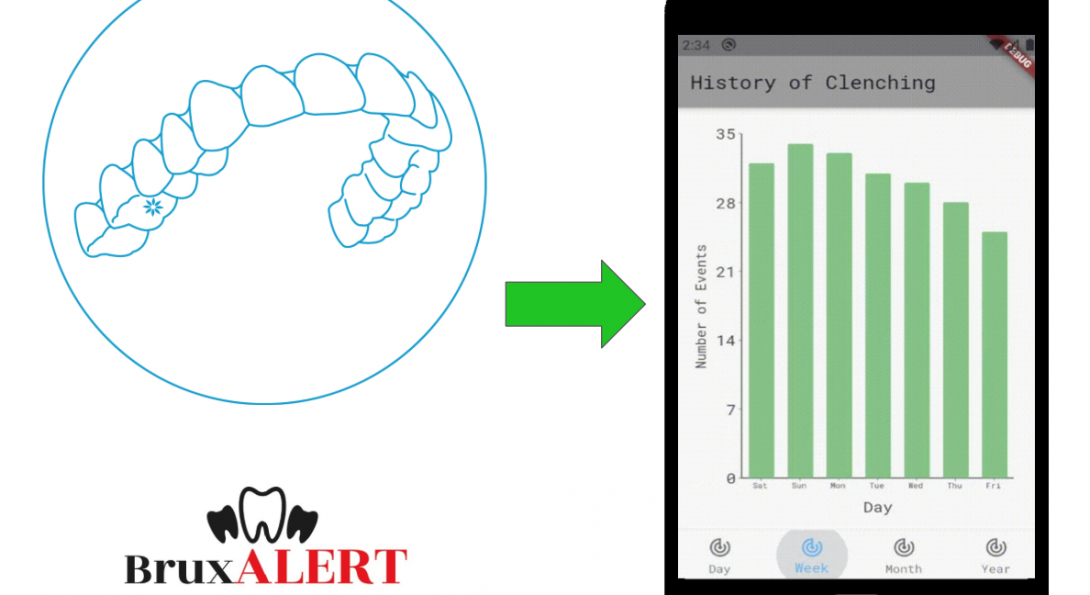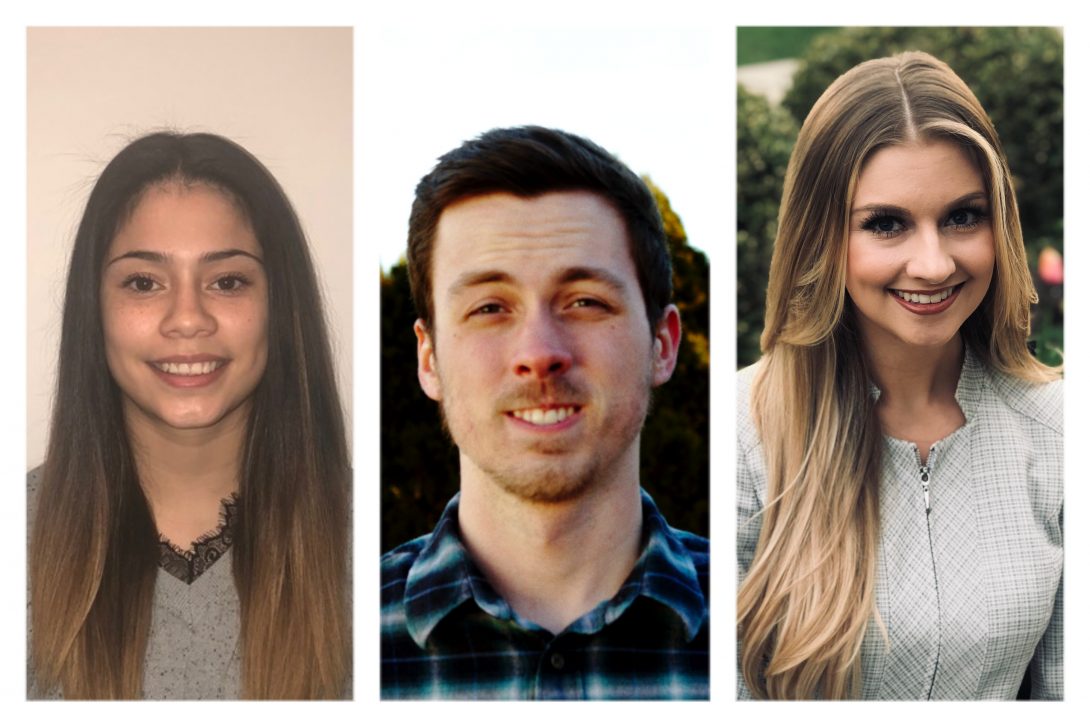BioE undergrad team wins accolades for new wearable device to treat bruxism

Team wins VentureWell E-Team award and reaches finalist round at 2020 Johns Hopkins Healthcare Design Competition Heading link

66 million Americans chronically grind or clench their teeth—and most of them don’t know that they do it. A team of undergraduate bioengineering students are developing a wearable device to help people break the habit.
Allison Bayro, Analise Hernandez, and Brandon Sakas worked on creating a wearable oral device called BruxALERT that uses biofeedback to alert users when they are clenching or grinding—a habit called bruxism that can lead to chronic headaches, face and jaw soreness, receding gums, and lesions of the teeth.
“This is an important feature as only 3 percent of [people] who suffer from bruxism are aware of this behavior and can consciously stop the habit,” Bayro said. She added that current products on the market such as night guards only address symptoms like enamel wearing but do not target the root of the problem.
To clinically test the device, the students are working under the supervisor of Professor Hananeh Esmailbeigi in the Wearable Technology & Sensory Enhancement Laboratory. Nicholas Marjanovic a PhD candidate in the department of bioengineering is also advising the group.
Esmailbeigi said the wearable device sends a signal to an app during instances of clenching or grinding, and the app then collects the data and allows users and their doctors to track the progression of this condition over time.
The team received a $5,000 grant from the VentureWell Stage I E-Team Program, a training that could help them take their invention from the lab to market. They were also one of the finalists from the 225 applicants at the 2020 Johns Hopkins Healthcare Design Competition this spring.
“Our device is in the early stages of development, and the competition was of high caliber. It was an enormous honor to be part it.” Esmailbeigi said.
To prepare for the final round of the Johns Hopkins Healthcare Design Competition, which were held virtually this year, the team had to create a seven-minute pitch covering topics such as the intellectual property, research and development strategy and business model as well as preparation for an eight-minute question-and-answer session. Hernandez said this was a nerve-wracking and exciting experience because it was their first time giving a virtual, professional presentation.
“Some of the other projects at the competition were well developed and were being preparing to be on the market,” Hernandez said. “It was interesting to see this because hopefully, our project will get to that phase in the future. It was a great learning experience overall, and I feel more confident in presenting our project and answering any questions moving forward.”
Despite the inability to work in the laboratory due to social distance rules, the team practiced together every night for weeks and continued to work on the prototype and software at home.
Bayro said the project and the competition provided invaluable experience for the team.
“This experience was the culmination of my education as I believe that all the learned technical, professional, and soft skills prepared me to partake in the Johns Hopkins Competition,” Bayro said. “I thoroughly recommend that students participate in opportunities like these to apply such knowledge and skills as well as to expand their professional network.”
As part of the VentureWell grant, the team will receive virtual training on how to bring an invention to the marketplace later this year and will be able to further develop their prototype. They will then have the opportunity to apply for Stage II, which is a $20,000 grant. All three students plan to continue working in Esmailbeigi’s lab on the BruxALERT the next academic year.
“This was really exciting as it was also the same week that we were informed about the transition to online classes for the remaining part of the semester and postponed graduation,” Bayro said. “In light of the changes in the world, the news was incredibly uplifting and exciting.”